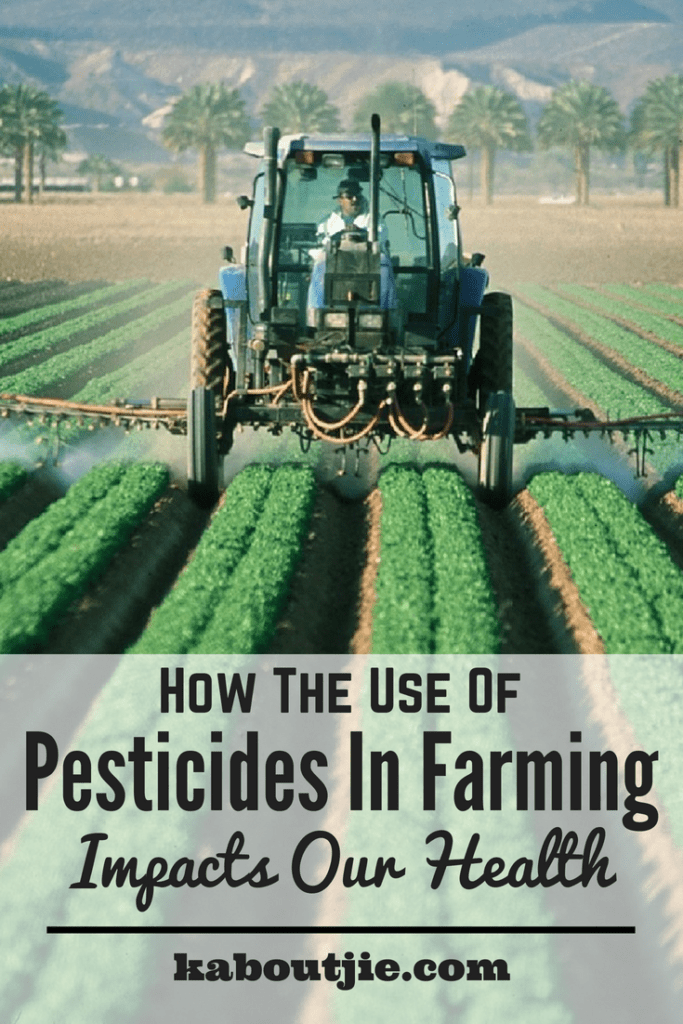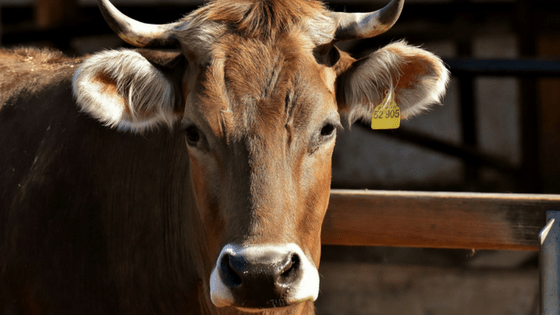The effect of industrialization on farming and food production has been enormous in the last 50 years. Food has never been so cheap and yields never more plentiful – largely as a result of advances to farming methods and the application of science and technology. However – these benefits come at a cost – a cost to our environment and a cost to our health.

Pesticides – impacting our food and soil
Pesticides and herbicides are chemicals designed to kill any living organisms that affect the crop yields. While organic pesticides have been in use for many years in varying forms, the use of synthetic pesticides rose rapidly in the last 50 years – with more than 1000 pesticides in use around the world today, with the use (amount and type) of pesticides varying markedly in different countries.
While they help increase the yield and protect the harvest for the farmers, Many of the most commonly used pesticides today have been shown to be harmful to our health (1), and a growing number of studies have linked pesticide exposure to chronic health effects.
How are we exposed?
We can be exposed either through the residues found on or in our foods – particularly in fruits and vegetables, contaminated animal tissues and fish, or through contaminated water (2).
Research conducted in 2012 (3) suggested that certain pesticides directly alter our microbiome (leading to gut dysbiosis), which subsequently increases the risk of health problems such as diabetes, obesity and auto-immune diseases.
Glyphosate
One pesticide that has been in the news a lot recently is Glyphosate, a chemical found in Roundup – and one of the most widely used herbicides. Residues of Glyphosate, have been found in many popular foods and cereals and, have been shown to promote the growth of some disease-causing bacteria by preferentially limiting the growth of common gut bacteria (1).
Many consumer rights groups and organizations such as the Union of Concerned Scientists and the European Citizens’ Initiative, are expressing their concern that there is enough evidence to show that certain pesticides, such as glyphosate, do cause us harm.

How to Avoid Pesticides
Avoiding pesticides completely is no easy feat, but a good starting point is to be conscious of which foods contain higher concentrations of pesticide residues than others.
In 2017, foods with the highest levels of pesticide residues were: strawberries, spinach, nectarines, apples, peaches, celery, grapes, pears, cherries, tomatoes, sweet bell peppers and potatoes (4).
Bananas, aubergines, broccoli, virgin olive oil, orange juice, peas, peppers, raisins, wheat, butter and eggs were all found to have a higher chance of containing multiple residues (5).
The best way of reducing the risk of pesticide exposure is to wash all your fruit and vegetables thoroughly or to eat organic food. While organic food can still contain traces of pesticides, the concentrations are much lower than non-organic foods (4).
For best results soak your fruit and vegetables in warm water and vinegar, scrub the skins or leaves firmly and discard the outer layer of leafy vegetables.
Antibiotics – in food and environmental pollution
Antibiotics have been used in animal production for nearly 70 years as a growth promoter. Low doses of antibiotics in animal feed were discovered to promote weight gain in animals in 1950 and for a long period of time giving low levels of antibiotics to livestock was common practice globally.
While regulations have since been introduced to outlaw this practice in the EU – and are now being considered in the USA – antibiotics can still be administered to animals to treat outbreaks of disease.

How antibiotics harm our health
While antibiotics were a breakthrough in modern medicine, if overused, they can produce a lot of harm. For instance, antibiotics wreak havoc on the gut microbiome, killing both good and bad bacteria. This is why, when you take them, the most common side effects are diarrhea and/or upset stomach.
Now, the recent scientific proof shows that the gut microbiome (or the diversity of bacteria living in the gut) is responsible for our health, mood swings, and even the strength of the immune system, so when you take antibiotics, the body’s defenses will be lowered.
Of course, if they are taken according to a doctor’s prescription, your gut should be able to recover. However, if you consume food that contains antibiotics at the same time you’re also taking the prescription, the result can be an overuse.
And it’s not just the food that is affected by the use of antibiotics on animals and crops. Through excretion, the antibiotics reach the environment, infiltrate in water sources and crops, and help create the so-called super-bugs. These are resistant bacteria that usually lurk in hospitals and they are not affected by the current strain of antibiotics.
Due to current regulations, the amount of antibiotics in our food is very low because each animal product designed for large consumption has to go through a drug withdrawal process before it is used as food.
However, there are situations when the law and the practice are different, which is why consumers should be careful in choosing their food supplier.
How can we solve this situation?
The world needs to be fed and industrial farming proved that the techniques used (even though harmful to the environment) can keep our tummies filled. However, more and more people get worried that we are slowly killing the very planet that keeps us alive, so they had to consider an alternative.
For now, the best solution is sustainable agriculture, which provides the same types of products as industrial farming, but without using techniques that harm the environment.
The interesting part is that it’s not a new concept and people all over the world have been practicing it ever since we evolved from hunters to gatherers. And, while there are voices that say the only way to feed the growing population is with industrial agriculture, they don’t have any hard evidence to back up these claims. Furthermore, the evidence points directly to sustainable agriculture as being the only way to move forward.
For now, we still rely heavily on industrial farming for food, but we hope the future will bring a wind of change. This will definitely improve our gut health and overall well-being!
- Sanborn, M., Kerr, K. J., Sanin, L. H., Cole, D. C., Bassil, K. L., & Vakil, C. (2007). Non-cancer health effects of pesticides: systematic review and implications for family doctors. Canadian Family Physician, 53(10), 1712-1720.
- Casals-Casas, C. & Desvergne, B. Endocrine disruptors: from endocrine to metabolic disruption. Ann. Rev.
73, 135–162 (2011). - European Commission Press Release 2017: Glyphosate.
Available from: http://europa.eu/rapid/press-release_IP-17-5191_en.htm - National Pesticide Information Center: Minimizing Pesticide Residues in Food. Available from: http://npic.orst.edu/health/foodprac.html
- Riley, L. W., Raphael, E., & Faerstein, E. (2013). Obesity in the United States–dysbiosis from exposure to low-dose antibiotics?. Frontiers in public health, 1, 69.
About The Author
Stewart is a health expert and content manager at TheGoodGut. Believer in a spread of actual and factual information.
https://www.facebook.com/thegoodgut.org/
https://twitter.com/thegoodgut
 Kaboutjie SA Mommy Blogs by Lynne Huysamen
Kaboutjie SA Mommy Blogs by Lynne Huysamen





Oh my word, I had no idea that pesticides had such an impact on our health just by eating foods that we buy from retailers on a weekly or monthly basis.
I knew that they are harmful, but not to such an extent.
I saw fictional programmes on TV where pesticides turned out to be the cause of someone dying and judging by this article, it is not so fictional as we think. Pesticides can make us sick and affect our health.
Luckily, I am in the habit of rinsing my fruit and vegetables and even more so after the Listeriosis scare we’ve had earlier this year.
I will definitely try the vinegar and warm water method just to be extra careful.
Another shocking truth was reading about antibiotics used on animals that indirectly has an impact on our health when eating the meat. I never even took that into consideration.